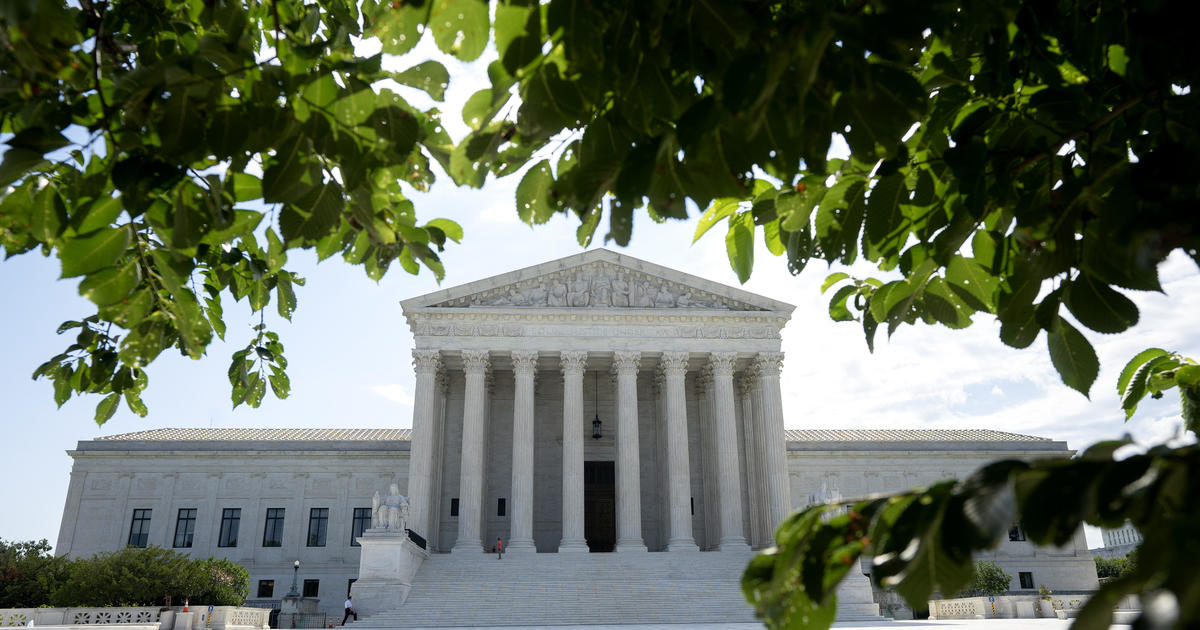The Supreme Court on Friday declined to allow the Biden administration to enforce certain provisions of a new rule that aimed to provide protections against discrimination for transgender students under Title IX. This decision came as legal proceedings surrounding the rule continue to unfold.
The high court chose to uphold two separate orders issued by federal courts in Kentucky and Louisiana, which had previously blocked the Department of Education from implementing the rule in its entirety across 10 states. The Justice Department had sought the Supreme Court’s intervention to temporarily halt these lower court rulings, but the Supreme Court ultimately rejected these requests.
While four justices expressed a willingness to allow some parts of the rule to go into effect, the entire court agreed that the most contentious aspects of the rule, such as the redefinition of “sex discrimination” to include “gender identity” and the restrictions on same-sex spaces, should remain blocked for the time being.
As this story continues to develop, updates will be provided as new information becomes available.
Jan Crawford contributed to this report.
The U.S. Supreme Court
For Melissa Quinn, a politics reporter for CBSNews.com, covering U.S. politics is a passion. With a specific focus on the Supreme Court and federal courts, Melissa’s work has been featured in various outlets, including the Washington Examiner, Daily Signal, and Alexandria Times. Her dedication to providing in-depth coverage of important legal issues ensures that readers are informed and engaged with the latest developments in the field.
The decision by the Supreme Court to uphold the injunction on certain provisions of the Biden administration’s rule regarding protections for transgender students under Title IX has sparked debate and discussion across the country. Advocates for LGBTQ rights have expressed disappointment with the court’s decision, while others have praised the ruling as a victory for safeguarding traditional values.
In recent years, the issue of transgender rights has become increasingly prominent in the national conversation. With more individuals identifying as transgender and seeking legal protections against discrimination, questions surrounding gender identity and equality have taken center stage in the political arena. The Biden administration’s rule was intended to provide clarity and support for transgender students facing discrimination in educational settings.
However, opponents of the rule argue that it goes too far in redefining traditional concepts of gender and could infringe upon the rights of others, particularly in regards to privacy and safety in shared spaces. The controversy surrounding the rule has reignited debates over the balance between protecting the rights of transgender individuals and upholding the rights and beliefs of others.
The Supreme Court’s decision to maintain the injunction on key provisions of the rule reflects the complex and nuanced nature of the legal issues at play. As the case continues to make its way through the courts, it is likely that further legal challenges and debates will arise, shaping the future of transgender rights and protections in the United States.
In the meantime, advocates on both sides of the issue will continue to make their voices heard, advocating for their respective positions and seeking to influence public opinion and legal outcomes. The Supreme Court’s decision is just one chapter in a larger story surrounding transgender rights and equality, and the ultimate resolution of these issues remains uncertain.
As the legal proceedings continue and new developments emerge, it is important for all stakeholders to remain informed and engaged with the evolving landscape of transgender rights in America. By staying informed and participating in the conversation, individuals can contribute to a more inclusive and equitable society for all.









